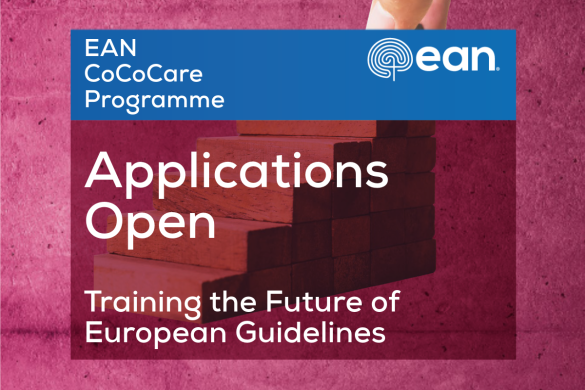During the EAN Congress 2024 in Helsinki, the EAN Scientific Department invited attendees to participate in a survey at the Research booth. The survey included six questions, ranging from participants’ current career stage to the frequency with which they use AI methods, their experience with EU funding schemes and the link between climate-related conditions and neurological syndromes.
As an added incentive, participants had the opportunity to enter a lottery to win one of the three ‘Think Tank’ brain-shaped ceramic pots.
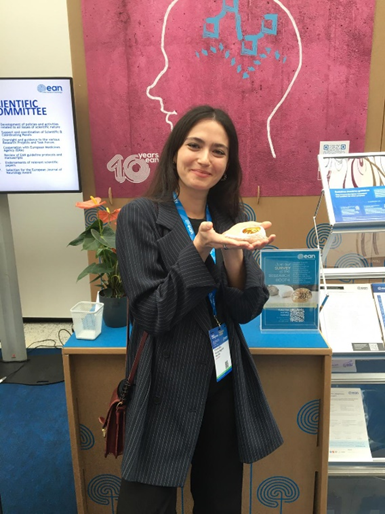
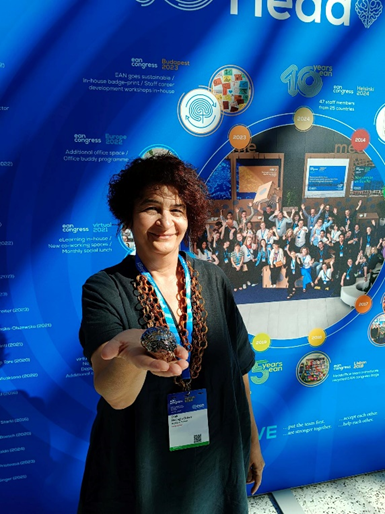
Above: two of our lucky Research Booth Survey winners
We extend our heartfelt thanks to all 262 participants and encourage you all to explore the survey results, described below by thematic areas.
Current Career Stage
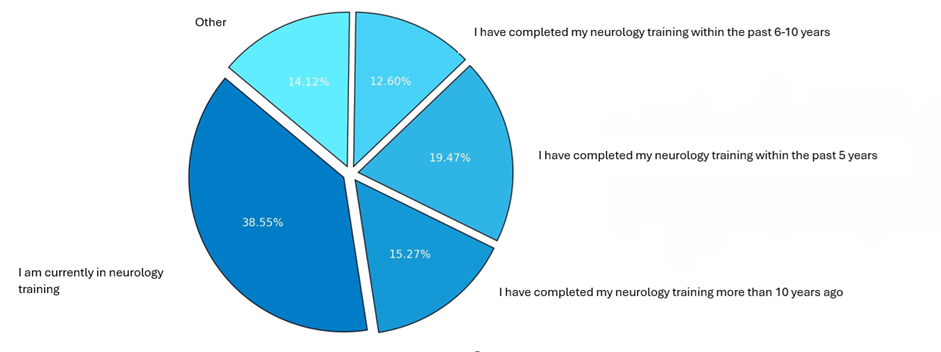
Most of the survey respondents (n=101; 38.55%) were neurologists in training, while a smaller proportion (n= 33; 14.12%) were undergraduates, about to start neurology training or had other professional titles (e.g., pharmacists, psychologists, etc).
Level of familiarity with the EAN guidelines
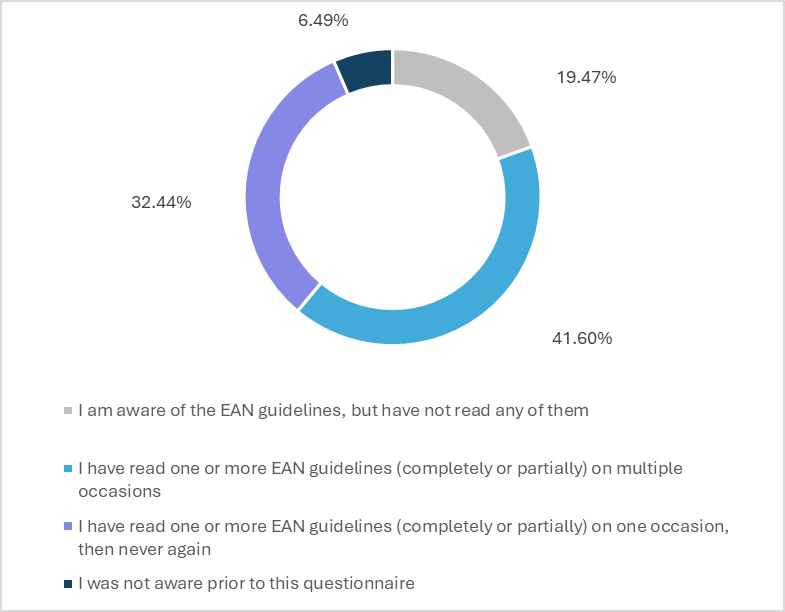
A higher proportion of the participants (n=109; 41.60%) had read one or more EAN guidelines (completely or partially) on multiple occasions while a smaller group was not aware of their existence until taking part in this survey (n=17; 6.49%). Using the chi-square method to test for an association between the career stage of the participants and their level of familiarity with EAN guidelines, a significant association was found (x2= 23.25, df = 12, p = 0.02). The results in this sample of participants suggest that as neurologists progress in their career and become more experienced, they depend less on EAN guidelines.
AI in Neurology
When asked about the frequency of AI use in their clinical practice, most participants indicated that they had never used it (n=119; 45.41%). Only 12.60% (n= 33) reported using these methods regularly.
Responses were then re-encoded into a yes/no type of answer for the use of AI. When performing a chi-square test, results indicated the presence of a significant relationship between the use of AI and the career stage of the participants (x2= 12.173, df = 4, p =0.01). Neurologist in the early stages of their career reported a higher use of AI in comparison to senior neurologists.
Regarding the use of AI for administrative tasks, emails, or other non-clinical work, more than half of the respondents stated they use it only a few times a year (n=136; 51.91%). On the contrary, only a minority of the participants expressed daily usage of AI (n=9; 3.4%).

Experience with EU funding schemes
The vast majority of the participants who took part in this survey have not had any experience with EU funding schemes (n=202; 77.10%). Only 22.9% of the sample (n= 60) reported having either applied for funding or participated in an EU research project. Further analyses (chi-square test) did not indicate any association between the responses and the career stage of the respondents (x2= 6.59, df = 8, p= 0.58).
In connection with this, we would like to remind our community that the EAN welcomes requests for support in EU funding proposals. Feel free to visit our EU research funding website for more information!
Neurology and climate change
When respondents were asked if they had observed a worsening of neurological symptoms or diseases in patients in connection with the current climate change or environmental disasters during their daily clinical practice, the answers were evenly distributed. A total of 34.51% (n=90) reported not having observed any worsening, 32.82% (n=86) affirmed they had observed worsening but not in a significant manner, and 32.44% (n=85) specified they had observed significant worsening.
When applying a chi square test, a significant association was found between the career stage of the participants and their opinion on climate change having an impact on neurological conditions (x2= 19.93, df = 8, p = 0.01). Respondents at an earlier stage of their neurological training tended to report with higher frequency that they had noticed a relationship between climate change and the worsening of neurological syndromes.
In a nutshell
Considering the results obtained, it can be suggested that participants who responded to this survey, and are at an early stage of their career, are generally more aware and make more use of EAN guidelines. Similarly, there appear to be a tendency for this group of participants to make more frequent use of AI methods. Likewise, this subgroup of the EAN survey respondents expressed having observed with a higher consistency a connection between climate change and the worsening of neurological conditions.
We hope these results will serve as a starting point for further, more in-depth scientific inquiry into these important topics.
If you have comments or questions or would like to know more details about the survey results, feel welcome to get in contact with us at scientific@ean.org.
We are looking forward to seeing you next year in Seville for the EAN Congress 2025!





